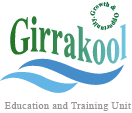30
SeptemberThe One Thing To Do For Lanna Rehab
Introduction
Alcohol detoxification is an important process when you look at the trip of data recovery for individuals suffering liquor addiction. It aims to eradicate toxins from human anatomy while managing detachment symptoms. This report explores the importance of liquor cleansing, the observable symptoms skilled during detox, plus the techniques used to ensure a secure and effective cleansing procedure.
Significance of Alcohol Detoxification
Alcohol cleansing plays a crucial part in addiction data recovery due to the real and mental reliance that develops over time. Chronic alcohol abuse results in alterations in brain biochemistry, leading to detachment signs when alcohol consumption is ceased. These symptoms include tremors, anxiety, insomnia, sickness, and even seizures. By undergoing detox, people can over come the instant physical effects of liquor withdrawal, setting the phase for additional therapy and lasting recovery.
Symptoms Experienced During Alcohol Detoxification
During alcoholic beverages detoxification, individuals may experience an array of withdrawal signs that can vary in extent. Mild signs can include trembling, perspiring, and headaches, while more severe cases can include hallucinations, delirium, and seizures. The strength and duration of those signs depend on various factors, including the quantity and duration of alcoholic abuse, specific health conditions, and earlier detox experiences. You should remember that these symptoms may be life-threatening, showcasing the requirement of health-related direction throughout the cleansing process.
Methods of Alcohol Detoxification
You will find different ways and options readily available for alcohol detox, that could be categorized into outpatient, inpatient, and hospital-based cleansing facilities. Outpatient cleansing programs provide flexibility, enabling people to get therapy while residing in the home. However, they have been generally recommended for those with mild withdrawal signs and a strong assistance system. Inpatient cleansing programs offer a controlled environment with 24/7 health care bills, ensuring instant awareness of any complications that may arise. Hospital-based detox, however, works for people with extreme detachment signs, needing a greater degree of medical intervention.
During detoxification, healthcare professionals may administer medicines to ease detachment symptoms and lower disquiet. Medicines like benzodiazepines, anticonvulsants, and anti-anxiety medicines can be accustomed handle withdrawal symptoms effectively. Additionally, medical professionals track essential signs, provide counseling services, and rehab center thailand (socsoc.co) apply an extensive plan for treatment to deal with the underlying factors behind liquor addiction.
Summary
Alcohol cleansing is a crucial step towards recovery, aiding people in handling detachment signs and decreasing the chance of complications. It provides a safe and supervised environment for people to eradicate toxins from their bodies and makes all of them for additional therapy modalities. But is essential to identify that cleansing alone just isn't a total option but alternatively the first phase of a thorough plan for treatment. After detox, people should always be promoted to engage in counseling, therapy, and organizations to deal with the mental and social components of alcohol addiction. By acknowledging the significance of liquor cleansing and offering comprehensive treatment, medical specialists will offer people suffering alcohol addiction a better chance at lasting data recovery.

